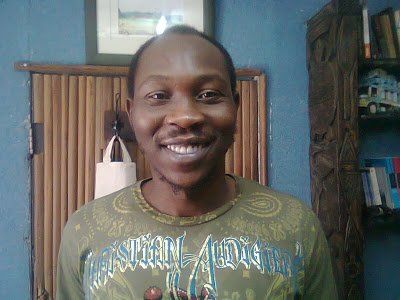Whatever I do, I do because of myself, so people shouldn’t judge me that I do things because I want to be like my father,” he said.
who they truly are. He said, “If most Africans understood what it means to be an artist and an African, they would use their music and their art to pursue freedom for their people just like Fela did.”
He says, “Right now we don’t need to sing about love in our music in Africa because that is secondary to what is happening to us. Singing love is like trying to copy people who have running water and electricity supply in their houses. Let us have running water and electricity in our houses first, and then we can think of love.
York, then you will hear something like “Oh, so romantic.” So let us wait for when candle light means romance, and then I can start singing about love.”
gullible to empty promises from politicians who promise the unrealistic in the shortest time ever. But Nigerians must learn to educate themselves to know what change really is, and understand how to ask for change.”
survival.
He established that Africans have always had their own forms of education before the coming of the Whiteman to the continent therefore, it was wrong for Africans to have been addressed as uncivilized.
“Africans through the ages have always been educated in our own ways because, before the Whiteman
came to Africa every young boy in Africa could tell you the names of different plants and what they did medicinally. But people have been brainwashed to think that that is being ‘bush’, but which is in fact education, knowing your environment,” Seun said.


Hi Debby, I quite agree with him. Over here candles r used when there is no electricity, so, they still don't depict romance here.
Thanks for the comment, nicely observed.